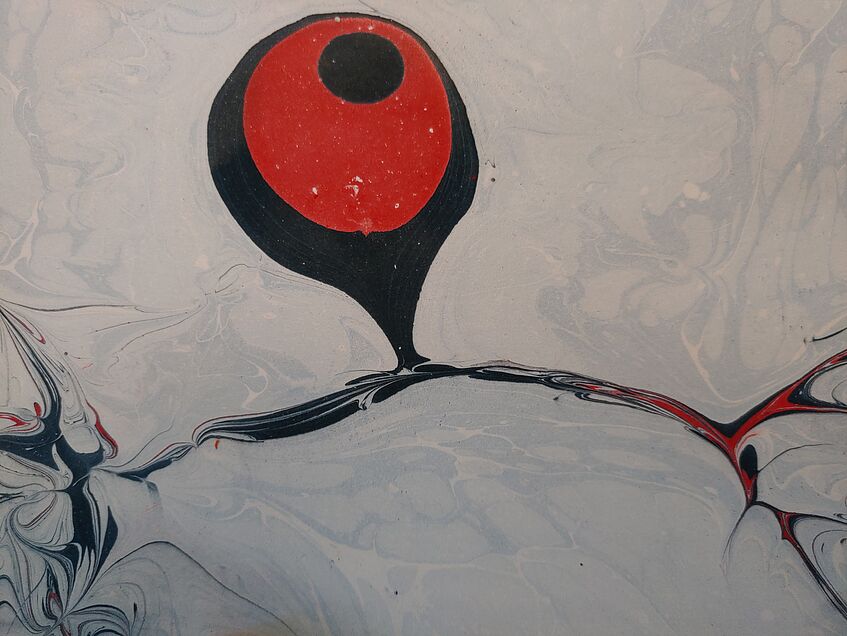Systems Biology of Pain
Head of Research Group: Univ. Prof. Manuela Schmidt

Artwork by Julia Regina Sondermann.
Mission statement
Research in our laboratory is driven by our motivation to decipher the dynamics of protein networks underlying vertebrate somatosensation in health, development (aging) and disease (chronic pain). Methodologically, we combine molecular biology, biochemistry and latest proteomics techniques, electrophysiology, pharmacology, mouse models of painful pathologies and in vivo virus-mediated gene transfer.
This multidisciplinary approach has enabled us to reveal ion channel-associated signaling complexes (i.e. the interactome of TRPV1, TRPA1 and Piezo2 channels) with pathological relevance for pain. Moreover, in a quantitative systems biology approach, we investigate spatiotemporal proteome dynamics both in mice and humans. Our research lives from our fruitful collaborations with basic researchers and clinicians alike facilitating forward and reverse translation of our research results.
In this way we strive to gain mechanistic insights into developmental and pain-associated plasticity – an endeavor, which lies at the heart of both understanding the molecular signature of chronic pain and identifying novel drug targets.
Team
- Univ. Prof. Manuela Schmidt, PhD. (Head of Research Group)
- Dr. David Gomez Varela (Senior Scientist)
- Lukas Uhrik, MSc. PhD(Postdoc)
- Feng Xian, PhD (Postdoc)
- Giacomo Carta, PhD (Postdoc)
- Nicole Kanta, BSc. MSc (TA)
- Ahmed Mohamed Mahmoud Hussein, BSc. MSc, PhD (TA)
- Peter Höflich (animal care facility)
- Natascha Deutsch (animal care facility)
- Allison Barry MSc PhD (postdoc)
- Sebastian Johannes Eder (Praedoc)
- Christos Athanasios Thivaios, MSC (Praedoc)
Every semester we are happy to welcome 2 master students into our team.
